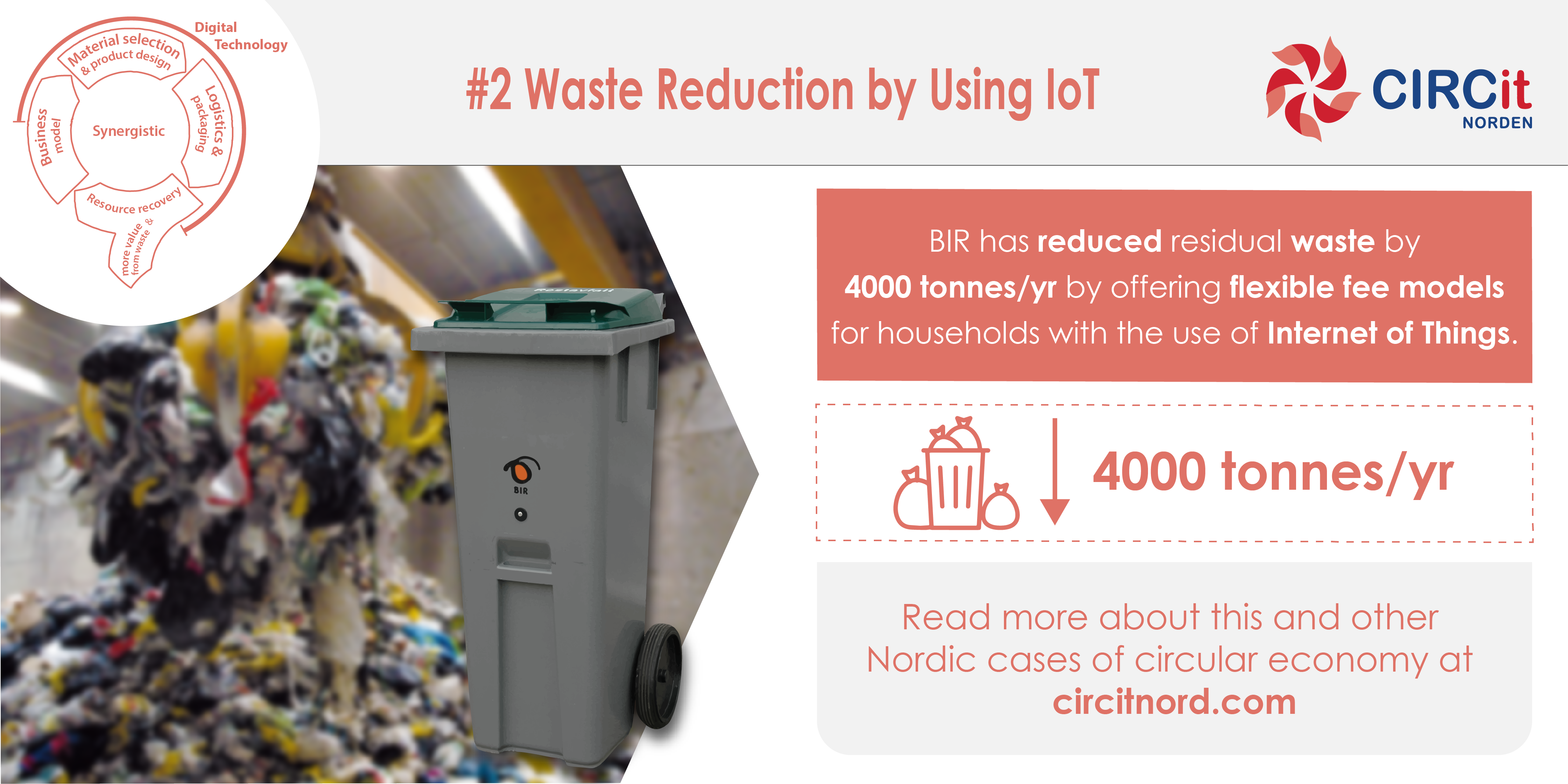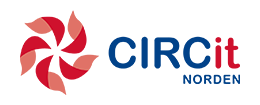
BIR has reduced residual waste by 4,000 tonnes per year by offering flexible fee models for households with the use Internet of Things.
Norwegian BIR, Bergen’s Inter-municipality Renovation company, handles the waste from 9 municipalities. BIR noticed that general household waste still contained many recyclable items. To increase the fraction of recyclables, BIR devised an alternative fee scheme. To enable the flexible fee scheme, BIR installed sensors on all household waste bins. These sensors register every time the household waste bin is emptied. This information is automatically sent to BIR and used as the basis for billing customers. By making the general waste more expensive compared to the recyclables, users are incentivised to separate their waste. This scheme has resulted in a reduction of residual waste by approximately 8%, corresponding to 4,000 tonnes/ year. Moreover, BIR has seen a considerable reduction in weekly pickups and thus aims to reduce their number of vehicles.
Read more about
BIR – Changing disposal behaviour through flexible fees
